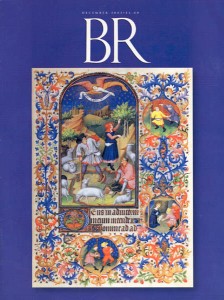Rhetorically Writing
The New Testament authors used every tool of the trade to influence their listening audiences.

Early Christianity was a missionary movement, out to persuade the world that Jesus was its savior. The success of the movement must be attributed in large part to the writers associated with it. Despite the popular characterization of the early Christians as a bunch of uneducated fishermen, the gospel writers, Paul and the anonymous author of the Letter to the Hebrews were all sophisticated and skilled wordsmiths—masters of their profession.a Among the most powerful tools employed by these skilled writers was rhetoric.
Today, we tend to think of rhetoric as referring to words that are “full of sound and fury, signifying nothing.” The term connotes words without substance (for example, political speeches) or mere eloquence (oratorical flourishes). But in New Testament times, rhetoric did not mean just speaking nicely. It meant speaking effectively. Rhetoric was the art of persuasion.
Already a library member? Log in here.
Institution user? Log in with your IP address.

